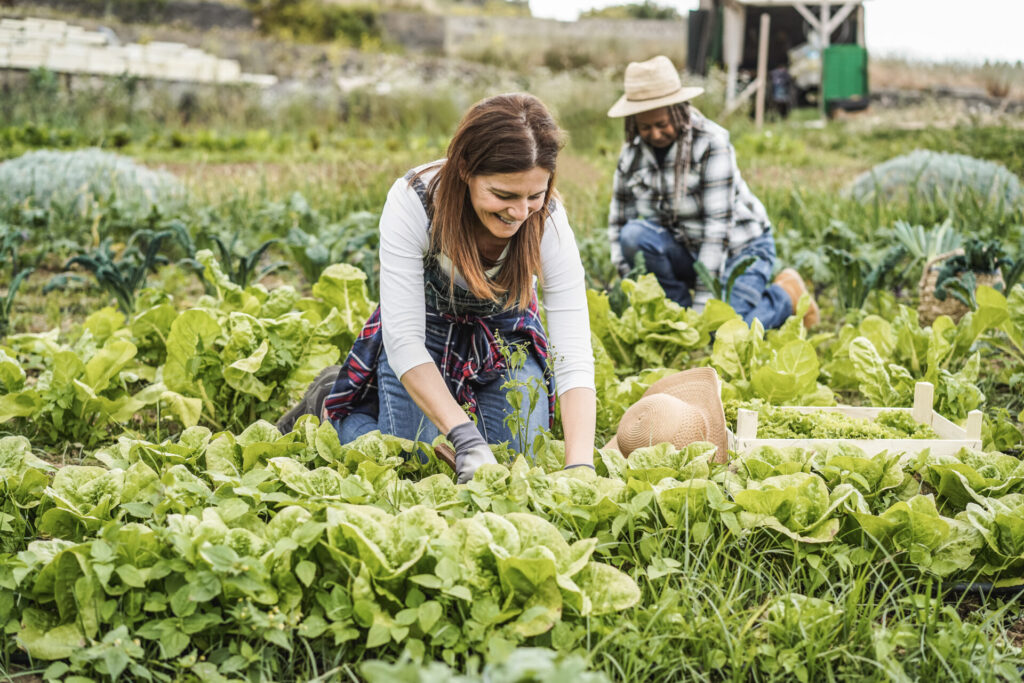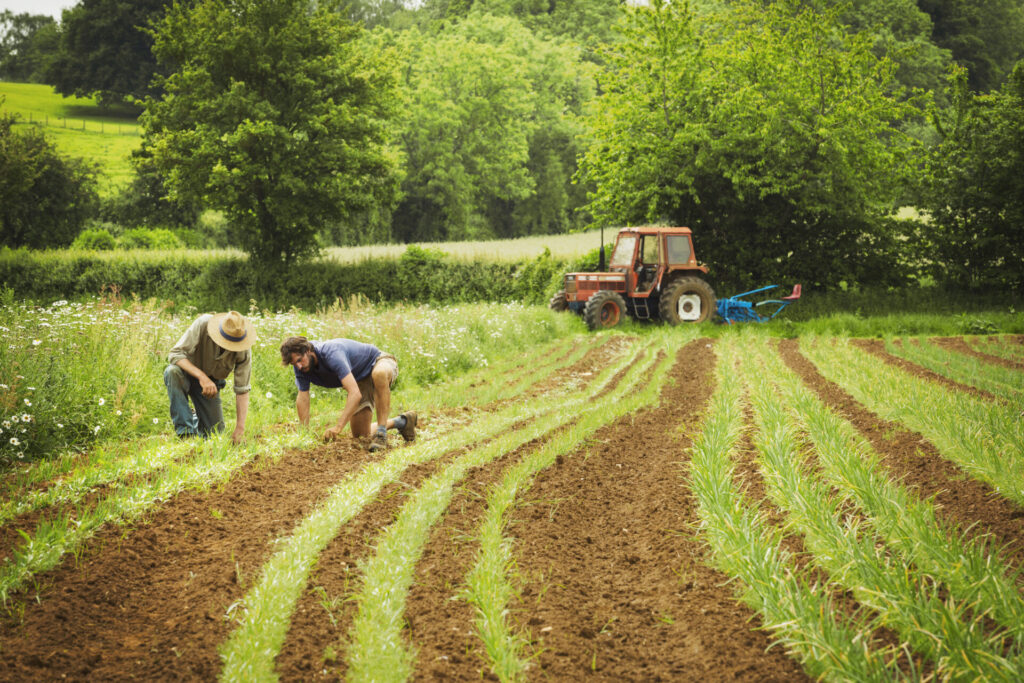
How Sustainable Farming Makes a Difference
Biodiversity is the foundation of healthy ecosystems, providing essential services that sustain life on Earth. However, human activities have significantly impacted biodiversity, leading to habitat destruction, pollution, and climate change. Sustainable farming is a critical strategy in the conservation of biodiversity, offering a pathway to protect and restore ecosystems while meeting the food needs of a growing population. This blog explores why we should conserve biodiversity, how we can conserve biodiversity, and the positive role of biodiversity farming in promoting a sustainable agricultural future.
Why should we conserve Biodiversity?

Conserving biodiversity is vital for many reasons. It supports ecosystem stability, enhances food security, and strengthens economic resilience. Healthy ecosystems improve soil fertility and promote natural pest control, essential for sustainable agriculture. Additionally, preserving biodiversity ensures the survival of various species, offering valuable resources for medicine and agriculture. Understanding why we should conserve biodiversity emphasizes our responsibility to maintain nature’s balance for future generations and guides effective conservation strategies.
Ecosystem Resilience: Diverse ecosystems are more resilient to changes and disturbances. By conserving biodiversity, we ensure that ecosystems can adapt to climate change and recover from environmental stressors.
Food Security: Biodiversity and agriculture are interconnected; a variety of crops and livestock breeds enhances food security by providing a buffer against pests, diseases, and climate variability. Diverse genetic resources also offer new opportunities for developing resilient crops.
Cultural Value: Biodiversity holds cultural significance for many communities, contributing to their identity and traditions. Protecting biodiversity helps preserve cultural heritage and supports the livelihoods of people dependent on natural resources.
Economic Benefits: Healthy ecosystems provide economic benefits through tourism, recreation, and sustainable harvesting of natural resources. Biodiversity contributes to the economy by supporting industries such as agriculture, pharmaceuticals, and biotechnology.
How Can We Conserve Biodiversity?
To answer how we can conserve biodiversity, we can promote sustainable farming practices, implement effective conservation policies, and raise awareness about biodiversity’s importance. Supporting local and organic products also helps protect native species and habitats. Engaging communities fosters responsibility, ensuring that biodiversity is preserved for future generations.

Here are some effective strategies:
Promoting Sustainable Practices: Farmers can adopt sustainable practices such as crop rotation, agroforestry, and organic farming to enhance biodiversity. These practices improve soil health, increase habitat complexity, and promote beneficial organisms.
Implementing Conservation Programs: Governments and organizations can create conservation programs that support biodiversity in agricultural landscapes. These programs can include incentives for farmers to preserve natural habitats and restore degraded areas.
Educating Farmers and Communities: Raising awareness about the importance of biodiversity and sustainable practices is essential. Educational initiatives can empower farmers and communities to make informed decisions that promote biodiversity conservation.
Supporting Research and Innovation: Investment in research to develop sustainable farming technologies can lead to innovative solutions that conserve biodiversity while increasing agricultural productivity.
A Key Solution for Sustainable and Eco-Friendly Agriculture

Biodiversity farming focuses on integrating biodiversity into agricultural practices, creating a more sustainable and resilient food system. Initiatives like Swasya Living’s Sannidhi Farms exemplify this approach by promoting eco-friendly farming methods that support local ecosystems. Here’s how biodiversity farming contributes to the conservation of biodiversity:
Enhancing Ecosystem Services: Biodiversity farming promotes various ecosystem services, such as pollination, pest control, and soil fertility. These services are vital for maintaining healthy crops and reducing the need for chemical inputs.
Building Resilience: Diverse farming systems enhance resilience to pests and diseases by integrating various crops and livestock. Swasya Living’s Sannidhi Farms offers eco-conscious individuals a chance to adopt sustainable practices in a harmonious setting, fostering a deeper connection with nature while promoting agricultural diversity. This unique environment empowers residents to thrive while nurturing the land responsibly.
Restoring Habitats: Sustainable farming practices can restore habitats for wildlife and beneficial organisms. Creating buffer zones, planting cover crops, and maintaining hedgerows can enhance habitat connectivity and promote biodiversity.Preserving Genetic Diversity: Biodiversity and farming are closely linked, as diverse crops and livestock breeds can withstand environmental stresses. Preserving genetic diversity
How Does Biodiversity Affect Agriculture?
The relationship between biodiversity and agriculture is reciprocal. Healthy ecosystems support productive agriculture, while diverse agricultural practices promote biodiversity. Here are key points illustrating this connection:
Soil Health: Diverse crops improve soil structure and fertility. Healthy soil supports plant growth, reduces erosion, and enhances water retention.
Pest Management: A diverse range of plants attracts beneficial insects that control pests naturally. This reduces the need for chemical pesticides, protecting both biodiversity and human health.
Climate Adaptation: Biodiversity in agriculture enhances resilience to climate change. Crop diversity allows farmers to adapt to changing weather patterns and mitigate the impacts of extreme events.

Conclusion
Sustainable farming plays a vital role in the conservation of biodiversity, offering a pathway to protect our planet’s ecosystems while meeting food production needs. By understanding why we should conserve biodiversity, how we can conserve biodiversity, and the benefits of biodiversity farming, we can work towards a future that harmonizes agriculture with nature.
Embracing sustainable practices is not just a choice; it’s a necessity for the health of our planet and future generations. Let us advocate for policies that support sustainable agriculture and commit to practices that protect and restore biodiversity. Together, we can cultivate a thriving planet.
Author’s Bio
Ritika Singh is a dedicated content writer with over two years of experience crafting engaging articles and blogs across various niches. With a keen eye for detail and a passion for storytelling, Ritika has developed a strong portfolio of work that resonates with diverse audiences. In addition to writing, Ritika excels in management skills, allowing a deep understanding of market requirements and trends. This unique combination of talents ensures that the content produced not only captivates readers but also meets strategic goals effectively. When not writing, Ritika enjoys diving into a good book and staying active with fitness routines, both of which inspire her with fresh and powerful ideas.
Weblink: https://www.swasyaliving.com/
Subscribe to The Sustainable Brands Journal for more environmental news, stories, interviews, and updates.

Prachi, an accomplished Chief-Editor at The Sustainable Brands Journal, has 15+ years of experience in Europe, the Middle East, and India, managing 90+ global sustainable brands. She’s a prolific writer in sustainability, contributing to various publications. Prachi’s unwavering passion and expertise make her a recognized authority, driving positive change and inspiring a sustainable future.





